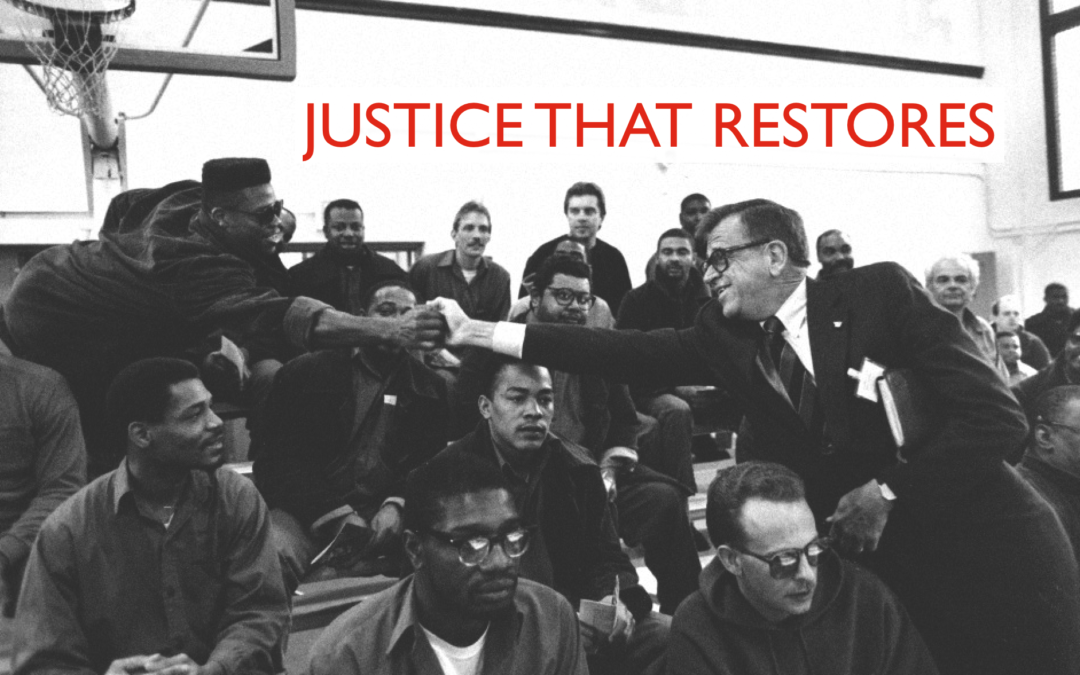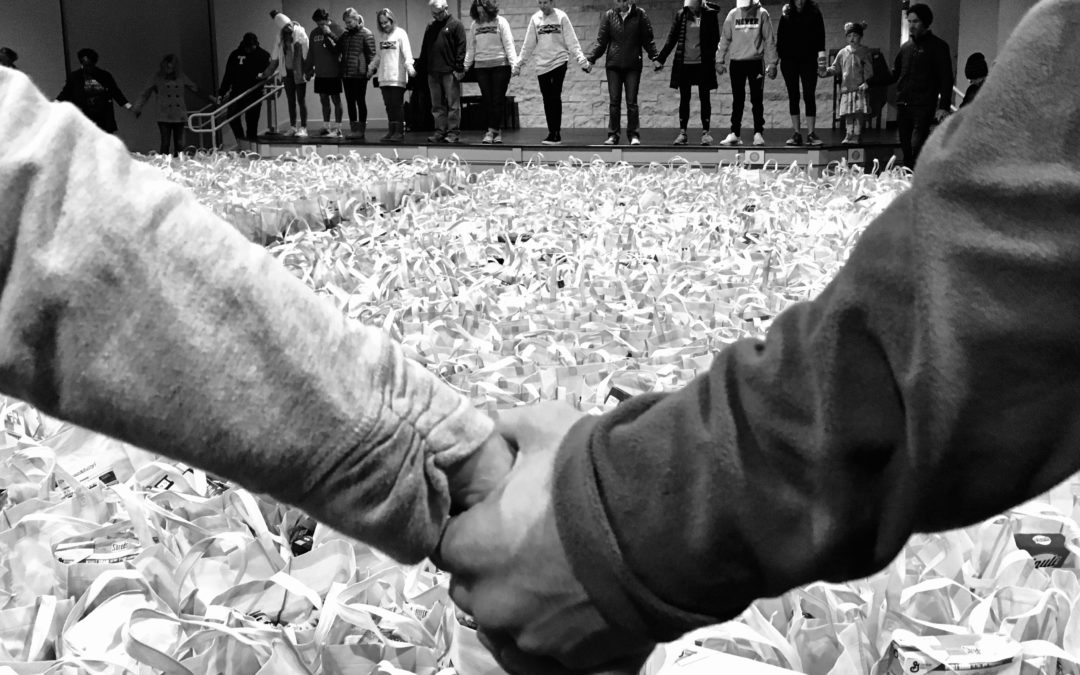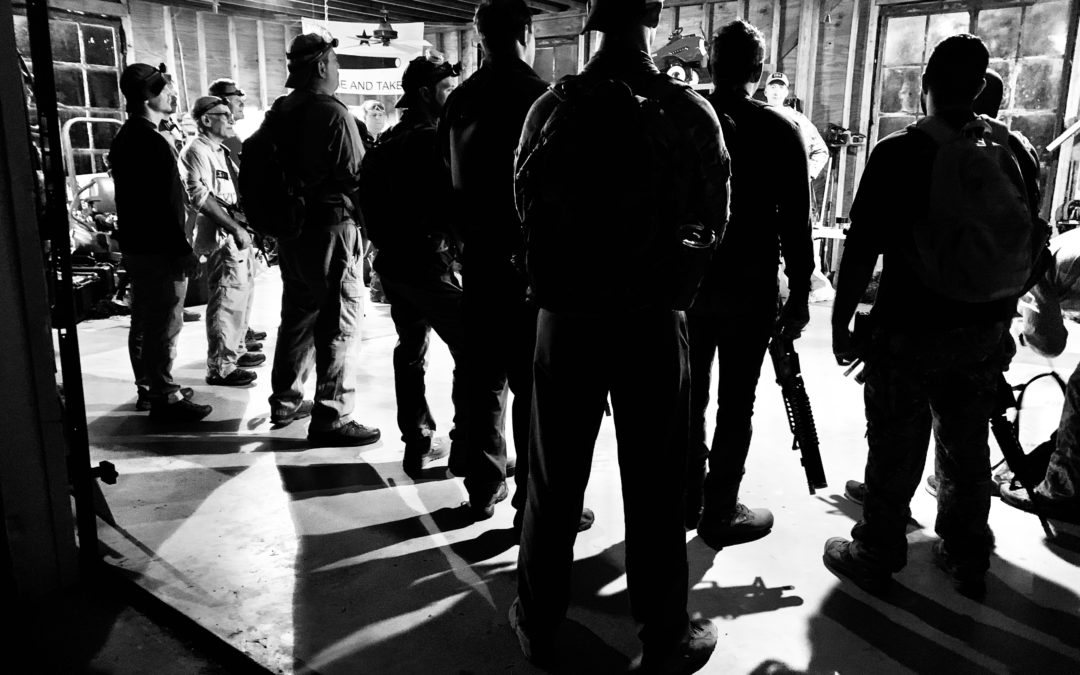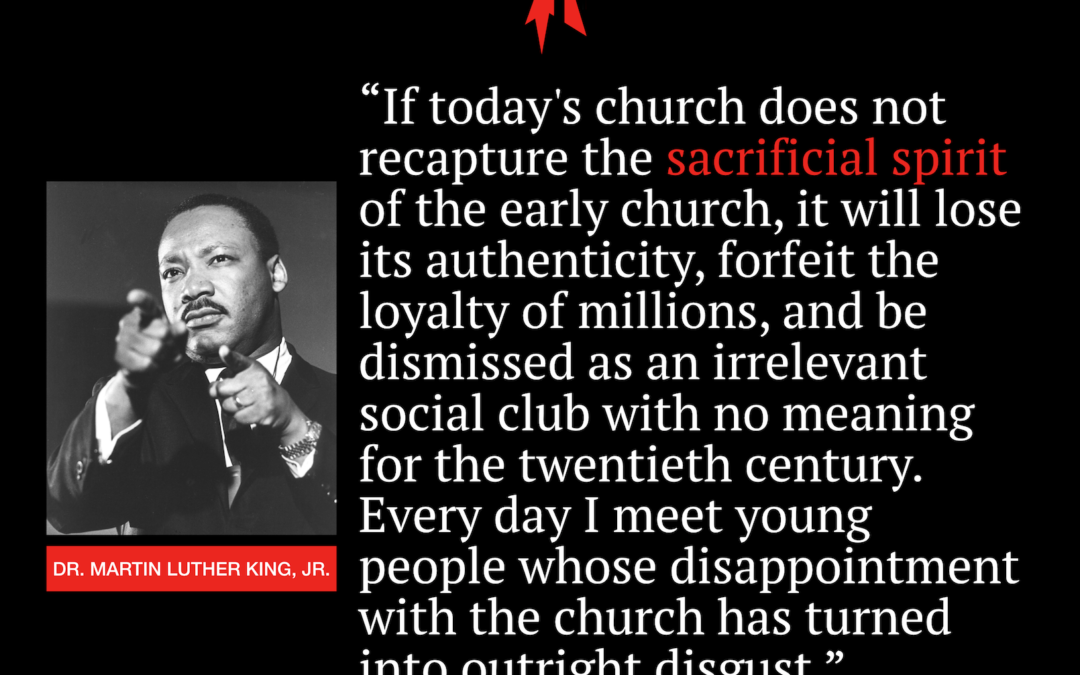
by Lance Cashion | Jul 15, 2020 | Culture, Current Affairs, God, Jesus Christ, Justice, Leadership, Reconciliation, Theology, Wisdom, Worldview |
Charles ‘Chuck’ Colson, served as Special Counsel to President Richard Nixon from 1969 to 1970.
Once known as President Nixon’s “hatchet man”, Colson gained notoriety at the height of the Watergate scandal.”(1) He was known for being ruthless.
On March 1, 1974, Charles Colson was indicted for his role in a massive White House cover-up. After initially pleading the Fifth Amendment in order to avoid conviction, his conscience would not let him rest. Colson changed his plea to guilty. On June 21, 1974, Chuck Colson was sentenced to prison for obstruction of justice.
Why would the ruthless ‘hatchet man’ who could have walked away a free man decide to go to prison?
You see, Colson became a Christian in 1973 and his life changed. For his part in the Watergate Scandal, he willingly went to prison. Little did Colson know that God would use prison to give him a vision. That vision would reshape the justice system and transform lives of hundreds of thousands of prisoners and their families worldwide.
No one has done more to reform the prison systems and justice systems in the US and around the world than the late Chuck Colson and Prison Fellowship.
“But all at once I realized that it was not my success God had used to enable me to help those in this prison, or in hundreds of others just like it. My life of success was not what made this morning so glorious — all my achievements meant nothing in God’s economy. “No, the real legacy of my life was my biggest failure — that I was an ex-convict. My greatest humiliation — being sent to prison — was the beginning of God’s greatest use of my life; He chose the one thing in which I could not glory for His glory.” (Chuck Colson)
Today, everywhere we turn people are crying out for justice. As I pointed out a few weeks ago in my post about our justice impulse, we all have an innate sense of justice. When we see injustice, we have a deep desire to see things made right.
As Christians, we must think deeply about justice and how to best understand it from a biblical foundation. Being emotional creatures, we must not let emotions or feelings cloud our understanding of justice. When we encounter injustice, how then should we respond as Christians?
Restorative Justice – Justice that Restores
While there are secular and pagan definitions, I believe that the Bible offers a better vision of Restorative Justice. Typically, I refrain from placing adjectives before biblical terms. For the sake of not being overly discursive, I’ll use ‘Restorative Justice’.
First, God’s justice is impartial. We are called to be impartial. To the extent that we are partial, we are distorting justice.
The Bible says, “For God shows no partiality.” [Romans 2:11] and “Do not pervert justice; do not show partiality to the poor or favoritism to the great, but judge your neighbor fairly.” [Lev. 19:15]
Second, drawing on a biblical worldview, I put forth my working definition of ‘Restorative Justice’:
Restorative Justice is a distinctly biblical vision of (impartial) justice that seeks to uphold what is righteous and good, contribute what is missing, stop what is sinful and restore what is broken. It reflects the Christian belief in the God-given dignity, value, and potential of every human being (2). Restorative Justice offers a better vision (of justice) – bringing Biblical truth to bear in the larger society (3).
Colson Fellow and Vice President of Church Mobilization for Prison Fellowship Heather Rice-Minus says, “Restorative Justice recognizes that crime is not just an offense against a government. Crime damages the security and well-being of the victim and the entire community.”
Isaiah 32:16-18: “Then justice will dwell in the wilderness, and righteousness abide in the fruitful field. And the effect of righteousness will be peace, and the result of righteousness, quietness and trust forever. My people will abide in a peaceful habitation, in secure dwellings, and in quiet resting places.”
Rice-Minus says, “This passage gives us glimpse of the ancient (Jewish) concept of Shalom – peace that encompasses tranquility, wholeness, safety, prosperity, and relational harmony. Crime impairs our ability to experience shalom.”
In the book, ‘Restoring All Things’, authors Warren Cole Smith and John Stonestreet develop the concept further;
“Restorative Justice prioritizes participation of those who are harmed by crime, promotes accountability of those who are responsible, and cultivates community engagement.
The government becomes a facilitator of justice where the person harmed and the person responsible for the harm become the direct parties involved in the justice process… This allows for individualized restitution that personalizes the harm and illuminates human dignity and value.
Restorative justice repairs the harm caused by crime by emphasizing accountability, forgiveness, and making amends. When victims, offenders, and community members meet to decide how to do that, the results are transformational.” (4)
Restorative Justice – The Church That Restores
The quiet work of the church raises awareness, influences local and state laws, brings criminals to justice, restores victims’ lives and works to bring justice and peace (shalom) into our community.
Jim Liske (former President of Prison Fellowship) said, “Why should justice be restorative? At its heart, crime isn’t about law-breaking; it’s about violating the peace and wholeness of the entire community.”
As Christians, we know that our sin is a crime against a good, loving and just God. Our crimes against God violate peace and wholeness in our families and communities as well. But, Jesus died on the cross on our behalf so we can be restored to Him. God’s justice is restorative in Christ Jesus. Don’t you think we should base our concepts of justice on that?
As God is redeeming and restoring brokenness in our community, we join Him in his work as a Church that Restores.
Resources:
Notations:
1. Wikipedia – Charles Colson
2. Jim Liske – Fox News article 2015
3. Ibid.
4. Restoring All Things (Smith/Stonestreet) – Heather Rice-Minus interview
Read previous post: “Developing a Distinct Christian Vision for Service”
If you like what you read here, please subscribe – sign-up here. Every time I post something new, you will receive an email.

by Lance Cashion | Jul 8, 2020 | Jesus Christ, Leadership, Personal Growth, Relationships, Serving, Worldview |
Over the last twelve months, I have undergone the rigors of the Colson Fellows Program Residency. The mission of this master’s level course equips Christians with a robust Christian worldview so they can thoughtfully engage with post-Christian culture, inspire reflection in others, and work effectively toward re-shaping the world in the light of God’s kingdom.
I have been developing a bigger vision for my life’s work and calling.
I’m bringing this vision to bear in my role as a Local Missions pastor at Christ Chapel Bible Church. My role is to help our church engage in service in our communities. My broader mission is to help my brothers and sisters develop a “distinctly Christian vision for life, culture, relationships and service.” In today’s post, I’m going to focus on service and what that means.
As I have reimagined and prayed about a ‘bigger vision’, I have realized my goal is not just to get people to serve but to understand the “Gospel of the Kingdom” – a truly Kingdom vision. Serving is just one expression of this comprehensive view of reality. Jesus spoke of the “Gospel of the Kingdom.” We need to ask, ‘What does He mean by ‘Kingdom?’ (Luke 4:43, Luke 8:1, Luke 10:9, John 18:36). I’ve found that the Kingdom sometimes gets lost in the noise of everyday life and even ministry.
When Jesus redeems and saves, He invites us to join him in the Kingdom work of redeeming and restoring the world and culture (all things) – albeit imperfectly. We are ministers of reconciliation between God and man through the Gospel. My good friend and Pastor Doug Cecil likes to say, “The Gospel is enshrined in our hearts and proclaimed with our lips.” I would also add that the Gospel is also seen in our lives and felt through our hands and feet.
Our witness is often seen before our words are heard. The Christian witness is often the window through which the unbelieving world sees the light of Christ. As Pastor Alistair Begg likes to say, “People often learn the melody of the Gospel before they learn the words.”
The church evangelizes the lost and calls redeemed people to play their role on the grand stage of God’s redemptive story (Acts 17:26, Ephesians 2:10, Ephesians 4:12). In doing so, we demonstrate that the Gospel not only saves but infuses and empowers every aspect of the follower’s life. Through the power of the Holy Spirt, we bring forth elements of Christ’s Kingdom into this broken world. Therefore, we should call our brothers and sisters from their inner-self focus to live the same way they were saved – by grace through faith. In reality, we are calling out what God has already placed in the heart of the Christ-follower.
We have a purpose in this life.
We are saved “for” something.
We must answer the question, “How then shall we live?”
We’re not calling our people to “do” something, we are calling them to “be” something. Their “doing” (actions) will flow from a distinct vision of who they are and their identity in Christ.
Are you a ‘Check the box’ Christian?
In other words, do you fall into the habit of ‘checking boxes’ for going to church, attending a bible study and serving occasionally? Would you say your Christian life is vibrant and joy-filled? If not, why?
This call to develop a distinct Christian vision for service completely removes “check box” from the available options. It challenges the believer to step through the beautiful threshold of Salvation into the Kingdom – where Jesus beckons, “follow me.” In following, we are abiding. And in abiding, we are bearing much fruit – proving that we are His disciples. In this, there is fulness of joy.
The life of the follower of Christ teaches and sanctifies the world around them by how they reflect the One whom they follow (Matthew 5:16). Developing a distinct Christian vision for service enables the us to use our gifts, talents, passions and abilities to bring God’s redemptive and restorative power into a dark and broken world.
“In the same way, let your light shine before others, so that they may see your good works and give glory to your Father who is in heaven.” (Mt. 5:16)
How then shall we serve?
Devotional Resource: From Ken Boa’s “Handbook of Wisdom”
Whatever I do, I should do all to the glory of God. (1 Corinthians 10:31)
Whatever I do, whether in word or in deed,
I will do all in the name of the Lord Jesus,
giving thanks to God the Father through Him. (Colossians 3:17)
Prayer:
Father, I want to dedicate all that I do this very day to Your glory and honor. There is no component of life that cannot be lived for You, no task so small and mundane that it is unworthy of being offered to Your service. Whether in my speech or in my actions, I will do all in the name of the Lord Jesus, giving thanks through Him to You. Amen.
Read previous post: “The Hand that Holds the Rod – God’s Discipline”
If you like what you read here, please subscribe – sign-up here. Every time I post something new, you will receive an email.

by Lance Cashion | Nov 14, 2019 | Culture, Leadership, Philosophy, Wisdom, Worldview
What does it mean to be a man in this cultural moment?
This all boils down to answering the question, “what does it mean to be human?”
This is a worldview question and depending on one’s worldview, will render different answers.
Worldview answers these questions:
- Metaphysical – what is real?
- Epistemology – what is true?
- Origin – where did I come from?
- Meaning – does life have meaning?
- Morality – what is right or wrong (good / evil)?
- Destiny – what happens when I die?
- Identity – who am I and does my life have purpose?
Every worldview must answer those questions in ways that correspond to reality and have coherence.
A secularist-atheist, Muslim, pantheist, Christian, etc will all answer these questions differently. Worldview drives behavior and how we see ourselves in our place in the world. What I believe about being a man in this cultural moment is shaped by my worldview. In the west, The contours of our body ethic are rooted in a worldview and philosophies emerging from Rome and Greece – that were both reshaped and reformed by Christian worldview.
As the Christian ethic is jettisoned for a more naturalistic / materialistic worldview, we don’t actually move toward something new, we move back to something old – Rome.
Therefore, this shift will change how we define our place and purpose in the world, man and woman.
I believe the definition of a man is rooted in biology, theology and character.
What does it mean to be a man?
He does not give in to passivity
He takes responsibility
He leads sacrificially
He defends the weak
He is a voice for the voiceless and a father to the fatherless.
He is faithful
He loves mercy and does justice
He loves well and leads well.
(Notice none of these attributes have anything to do with a man’s physical strength, violence or abilities).
“So God created man in his own image,
in the image of God he created him;
male and female he created them.
And God blessed them. And God said to them, “Be fruitful and multiply and fill the earth and subdue it, and have dominion over the fish of the sea and over the birds of the heavens and over every living thing that moves on the earth.” (Genesis 1:27-28)
Note: The content above was taken from a reply I wrote to a friend’s post on Facebook. This is an extension of my recent work in the Colson Fellows residency has helped me crystalize and communicate the contours of what shapes our worldview particularly in America today and our definition of man.
Resources:
Read previous post: Martin Luther King Jr.’s challenge to the church today
If you wish to subscribe to this blog, please sign-up here. Every time I post something new, you will receive an email.

by Lance Cashion | Nov 4, 2019 | Christian Apologetics, Culture, Education, Encouragement, God, Leadership, Politics, Theology, Worldview
Martin Luther King Jr.’s “Letter From Birmingham Jail” continues to be relevant in our cultural moment. His words challenge the church to embrace it’s full purpose. The extent to which the Gospel of the Kingdom is proclaimed and integrated into the life of the church is the extent to which the church is relevant and effective in society.
The quiescent church is the gateway to injustice, brokenness and disorder. The witness of the church should be felt throughout the culture as the Gospel message empowers believers to pursue justice and reconciliation, serve the needy, create beauty and restore what is broken. The death, burial and resurrection of Jesus Christ for the forgiveness of sin transforms the believer. This Gospel, rightly lived out will teach, sanctify and transform the society in which believers dwell. It will be distinctly ‘sacrificial’, restorative and bold in its expression.
Martin Luther King Jr. operated from a distinctly Christian worldview. It informed his purpose, his view of reality and drove his behavior. This nation has benefited from his worldview and his actions. His challenge to the church echoes today. Dr. King knew what he was about. Do you know what you are about?
We know what our salvation saved us from (eternal separation from God’s presence, goodness and joy).
But a better question is;
What is our salvation for?
[Put another way, what is the purpose of our salvation?]
Read: Martin Luther King Jr. ‘Letter From Birmingham Jail’
Read previous post: Dear Mr. President – We are their only hope [Kurds]
If you wish to subscribe to this blog, please sign-up here. Every time I post something new, you will receive an email.
![Dear Mr. President – We are their only hope [Kurds]](https://revolutionofman.org/wp-content/uploads/2019/10/Letter-to-President-Trump-re-Syria-Kurds-10-9-2019-copy-1080x675.jpg)
by Lance Cashion | Oct 9, 2019 | Encouragement, Leadership, Worldview
Below is a letter that I sent to President Donald Trump today regarding the recall of US troops from Syria. There is trouble in Syria, Turkey and Northern Iraq. This is the home of the Kurdish people. I’m calling for this administration to take immediate action to protect this region from those groups and nations that would cause them harm. ISIS 2.0 is ramping up in the region and Turkey (while in NATO) is no friend to the US or the Kurds.
The Kurds stood for us. Let’s stand for them.
Politics must be set aside in order to unite to do good. I encourage you to engage as well. We live in a country where citizens are free and safe to voice their dissent and opinions against actions or policies of our government. You have a voice, use it. Be wise and respectful when you do.
Letter Text:
President Donald Trump
1600 Pennsylvania Ave. NW
Washington, DC 20500
Dear Mr. President,
I am writing you in regard to your announcement to recall U.S. troops from Syria.
I am a pastor in Fort Worth, Texas. In 2018, I visited Northern Iraq (Kurdistan) with an NGO assisting the rescue and recovery of Yazidi women and children from ISIS terrorists in the region. They are also providing trauma care for those victims in the refugee camps around Duhok. I have seen first hand what ISIS has done to families and communities. It is impossible to describe the horrors they have experienced.
While in Kurdistan, I had the privilege of meeting Kurdish people from all over the region. Many of whom had fought ISIS and lost family members. Every Kurd I met was warm, kind and loving toward our great nation, the United States. The hospitality extended me while in-country can only be credited to the hard work of Americans over the last several years. I could not have been more proud to be an American.
The Kurdish region is the hidden gem of the Middle East. The Kurdish people are an international treasure – made up of Christians, Yazidi and Muslims. With vision and U.S. partnership, the region can become the epicenter of human flourishing, freedom and economic growth. No other nation on the face of the earth has the foresight and fortitude to stand for the Kurdish people like we do. ISIS or other terror groups will fill the security vacuum. We must protect the vulnerable and stand in the gap for our friends. We are their only hope.
In conclusion, Kurdish children have hopes and dreams – just like my children and your children. I’m humbly asking leadership to consider the unintended consequences of our actions. Please stand for the Kurdish people. We have an opportunity to make history and save lives. I hope to visit my Kurdish friends again one day and know that my nation stood in the gap for them. I ask myself the haunting questions, “What if that was my family? Who would help us?”
May God continue to grant you favor, vision and wisdom in your service to our nation. Thank you for giving me a hearing.
Serving you,
Lance A. Cashion

by Lance Cashion | Sep 25, 2019 | Culture, God, Leadership, Personal Growth, Relationships, Wisdom, Worldview |
In times of cynicism, banality, negativity and outrage there are two kinds of people. There are those who race to the bottom and make things worse. Then, there are those who elevate the cultural conversation and take action.
A few bad actors don’t make an entire group of people bad.
Don’t judge a philosophy by its misuse.
What is meant for good can be used for evil and vice versa.
Silence in the face of evil is itself evil.
Worldview matters. A vital key to understanding reality is to know what is good, what is true and what is beautiful. Only when we know those core essentials can we create a vision of restoration and act on it. C.S. Lewis said, “A man does not call a line crooked unless he has some idea of a straight line.”
Engage reality – create solutions, combat evil, restore people and relationships.
Ask these four questions
1. What is good you can celebrate?
2. What is missing you can contribute or create?
3. What is evil you can stop?
4. What is broken you can restore?
Develop these three life skills
- Wisdom (the art of living well in light of objective truth – in community, in our cultural moment)
- Discernment (identifying the nature of things – good or evil)
- Moral Courage (the will to stand for what is good, true and beautiful)
Goodness, truth and beauty find their source in God. When you look at a world in crisis, ask yourself; What is Good, True and Beautiful? When you experience brokenness, understand that it’s not supposed to be this way. Ask the four questions before racing to the bottom.
Elevate the conversation and respond with your heart set on restoration.
Practice – Training
Next time you sit with your family for dinner, ask each person to share something good, true and beautiful they’ve experienced today. Challenge them to focus on these things over the next week – to see their reality differently. When we know what is good, true and beautiful – we can frame solutions to all the bad stuff and negativity in our world. Our ministry is based on a good, true and beautiful God. Its from that foundation that we deal with sin, brokenness, evil and pain. Our mission is reconciliation and restoration.
*Note: The ideas in this post flow from Colson Fellows course study and talks given by John Stonestreet (Colson Center). I am thankful for those who stir the hearts and minds of men to think carefully in our culture.
Read previous post: PSA: How Deep Fake (AI) could turn your child’s photos into virtual porn
If you wish to subscribe to this blog, please sign-up here. Every time I post something new, you will receive an email.





![Dear Mr. President – We are their only hope [Kurds]](https://revolutionofman.org/wp-content/uploads/2019/10/Letter-to-President-Trump-re-Syria-Kurds-10-9-2019-copy-1080x675.jpg)
